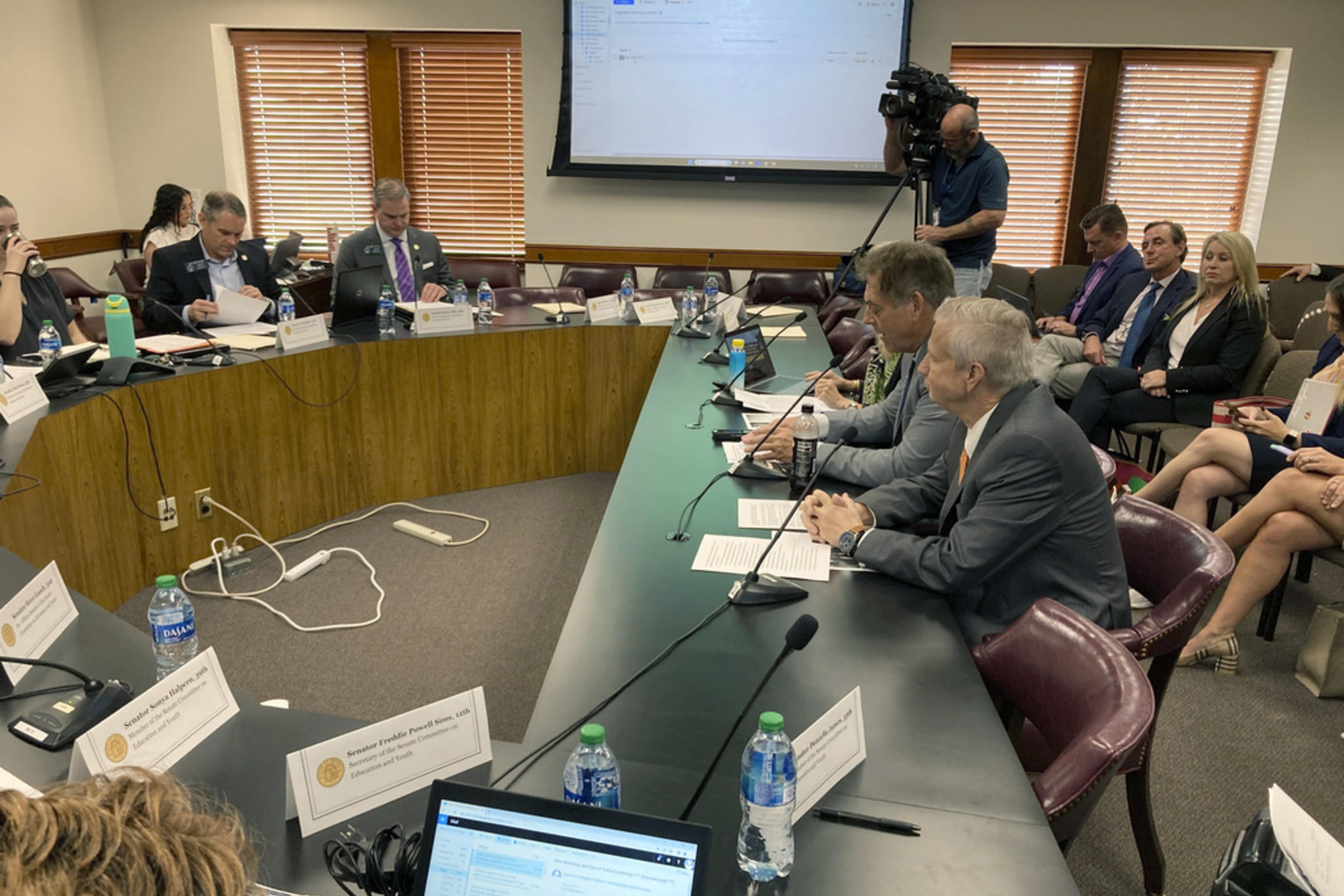Section Branding
Header Content
Opponents are unimpressed as a Georgia senator revives a bill regulating how schools teach gender
Primary Content
A Georgia state senator is trying to revive a proposal aimed at stopping teachers from talking to students about gender identity without parental permission, but both gay rights groups and some religious conservatives remain opposed to the bill.
That combined opposition was fatal to Senate Bill 222 in the regular session earlier this year.
Supporters of the bill say the new version they unveiled at a Wednesday hearing of the Senate Education and Youth Committee was more narrow.
"All we're simply saying is that if you're going to talk gender to a child under 16 years old, you need to talk to the parent," said Sen. Carden Summers, the Cordele Republican sponsoring the bill.
But opponents say little has changed. Liberals say it remains a thinly veiled attack on LGBTQ+ students, while conservatives say the law is a flawed and unwise attempt to regulate private schools.
"There have always been and always will be students who identify as transgender, or whose own sense of gender identity doesn't fit neatly into a specific binary box," said Jeff Graham, the executive director of LGBTQ+ advocacy group Georgia Equality. "This legislation will only add to the stigma they face and make their lives more challenging and difficult."
Opponents have said the measure is a Georgia version of Florida's "Don't Say Gay" bill aimed at handcuffing teachers from discussing or even acknowledging a student's sexuality. Summers denies that is the case.
"It is not a 'Don't Say Gay' bill. It is not," Summers said Wednesday.
Under the revised version of the bill, private schools would have to obtain written permission from all parents before instruction "addressing issues of gender identity, queer theory, gender ideology, or gender transition."
Public schools would have to create policies by Jan. 1, 2025, which would determine how the schools would handle issues of gender identity or a child wanting to dress as a different gender. The law would bar any changes to any school records based on a child's change in gender identity without written parental permission.
Schools that violate the law would be banned from participating in the Georgia High School Association, the state's main athletic and extracurricular body.
Private schools that violate the law would be banned from getting state money provided by vouchers for children with special educational needs. Public schools could see their state funds withheld for violations, while public school teachers and administrators would be threatened with the loss of their state teaching license.
Kate Hudson of Atlanta, who founded Education Veritas, a group that says it is fighting against liberal indoctrination in private schools, told state lawmakers they need to regulate private schools. She said the schools are engaged in a "calculated, coordinated, multipronged effort to break down and destroy our society at the expense of our children."
"We are connected to thousands of parents across Georgia that are having to navigate these dark waters of indoctrination and feel zero transparency is taking place," Hudson told the committee. "Parents are faced with deprogramming their kids every day and feeling trapped in a private or public school where the agenda cannot be escaped."
But other conservatives spurn regulation of private schools. They say the bill unwisely enshrines the concept of gender identity in state law and would let public schools override Georgia's 2022 parental bill of rights, which gives every parent "the right to direct the upbringing and the moral or religious training of his or her minor child."
"This bill, while attempting not to, undermines parental rights in our code, accepts the indoctrination it tries to prevent, and inserts the government in private schools' ability to operate free from government coercion," Taylor Hawkins of the Frontline Policy Council told lawmakers.
All but one senator on the majority-Republican committee voted to shelve an earlier version of Summers' bill this year in the face of combined opposition from liberals and conservatives.


